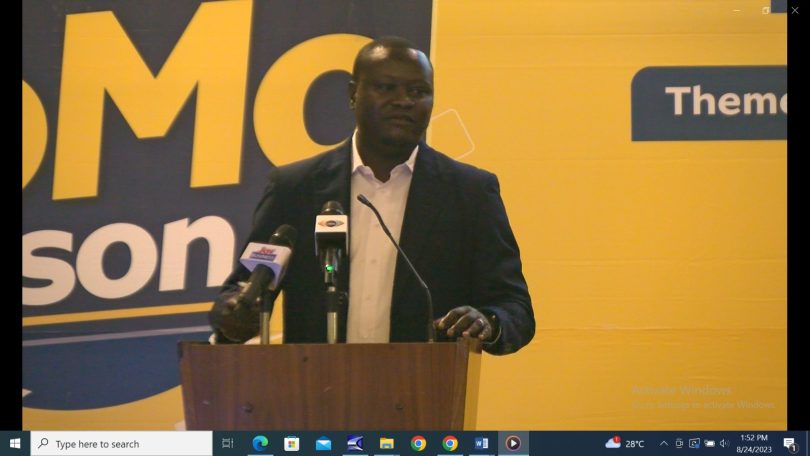Stakeholders gathered at an MTN “MoMo” forum in Accra have passionately appealed to the government of Ghana for a further reduction in E-levy charges, which they perceive as a significant bottleneck hindering the growth of digital payments in the country. Addressing the theme of the event, “Addressing barriers to digital payments in Ghana,” various experts and industry leaders emphasized the importance of reducing transaction fees and offering incentives to consumers as critical steps toward fostering digital payment adoption.
Eric Kortey, the General Manager of Cellulant Ghana Limited, highlighted the pivotal role transaction costs play in shaping the digital payments landscape. He emphasized, “This payment system provides such a volume-based business — you either keep the cost high and get less or you reduce it and get more. Since we want to increase digital adoption, reducing E-levy charges would help address such barriers.”
Despite substantial progress in expanding access to digital financial services and smartphone penetration in Ghana, a significant portion of the population remains unable to access and participate in these services. Kortey urged for action to make digital payments more inclusive.
Statistics Reveal Trends in Mobile Money Accounts and Transactions
According to statistics from the FinTech office at the Bank of Ghana, there have been notable shifts in the landscape of mobile money accounts and transactions over the past few years. Between June 2021 and June 2023, the percentage of active mobile money accounts relative to registered mobile money accounts decreased from 38.8 percent to 37.0 percent. However, during the same period, the total number of transactions surged by 40.7 percent, with a corresponding value increase of 71.7 percent. This marked a significant shift compared to the period between June 2021 and June 2022, which saw a 17 percent increase in transactions but a 7.6 percent decline in transaction value.
Regulatory Commitment to Address Barriers
Kwame Oppong, the Head of FinTech and Innovation at the Bank of Ghana, reiterated the central bank’s dedication to working closely with stakeholders to overcome the hurdles facing digital payments. He acknowledged the vital role mobile money has played in expanding the banking ecosystem and achieving financial inclusion goals. Oppong outlined key areas for improvement, including simplified onboarding processes, consumer education, customer recourse mechanisms, data privacy protection, and market supervision.
He also stressed the importance of creating an innovative regulatory framework that can serve consumers’ interests while advancing the government’s objectives of financial inclusion and a cashless society. In his view, healthy market competition should be constructive rather than destructive.
Addressing Knowledge Barriers and Fostering Inclusivity
Winifred Kotin, the Chief Executive Officer of Eagle Innovation, drew attention to the country’s literacy and financial literacy rates. With a literacy rate of approximately 69.8 percent and a mere 32 percent financial literacy rate, she emphasized the necessity for service providers to use community-based indigenous languages that are accessible to customers. Kotin also called for the development of innovative value-added services to enhance the retention and growth of Micro, Small, and Medium-sized Enterprises (MSMEs).
Achie Hesse, the Chief Operating Officer of Ghana Interbank Payment and Settlement Systems (GHIPSS), stressed the importance of involving the fintech industry in decision-making processes. She acknowledged the fintech industry’s pivotal role as the driving force of the digital payment space and advocated for stronger collaboration and continuous workshops to support their endeavors.
Sylvia Otuo-Acheampong, the Head of Products and Services at Mobile Money Limited, shared insights on the impact of the E-levy on their revenue. She noted that the introduction of the E-levy led to a significant drop in revenue, but when the levy was reduced, there was a corresponding uplift. This underlines the sensitivity of customers to pricing, emphasizing the need for a balanced approach to taxation in the digital payments sector.
stakeholders at the MTN “MoMo” forum in Accra have called upon the government to reduce E-levy charges to promote the adoption of digital payments in Ghana. These industry leaders and experts have provided valuable insights into addressing barriers to digital payments, including transaction costs, regulatory frameworks, and the importance of inclusivity and consumer sensitivity to pricing. The future of digital payments in Ghana appears promising with the commitment of both public and private sectors to drive its growth and accessibility.







